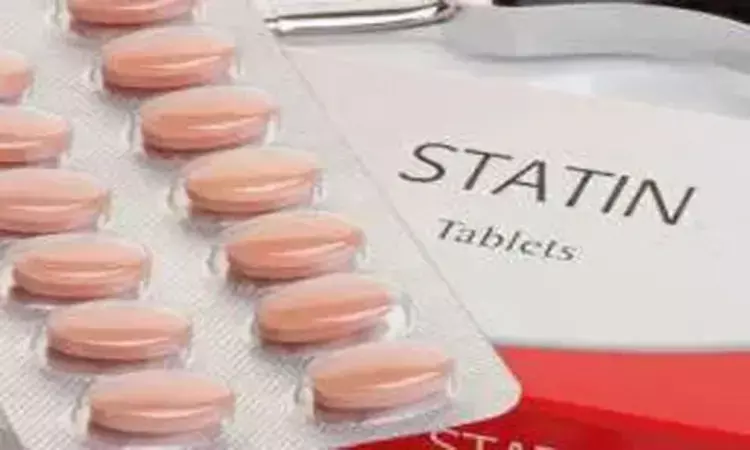- Home
- Medical news & Guidelines
- Anesthesiology
- Cardiology and CTVS
- Critical Care
- Dentistry
- Dermatology
- Diabetes and Endocrinology
- ENT
- Gastroenterology
- Medicine
- Nephrology
- Neurology
- Obstretics-Gynaecology
- Oncology
- Ophthalmology
- Orthopaedics
- Pediatrics-Neonatology
- Psychiatry
- Pulmonology
- Radiology
- Surgery
- Urology
- Laboratory Medicine
- Diet
- Nursing
- Paramedical
- Physiotherapy
- Health news
- Fact Check
- Bone Health Fact Check
- Brain Health Fact Check
- Cancer Related Fact Check
- Child Care Fact Check
- Dental and oral health fact check
- Diabetes and metabolic health fact check
- Diet and Nutrition Fact Check
- Eye and ENT Care Fact Check
- Fitness fact check
- Gut health fact check
- Heart health fact check
- Kidney health fact check
- Medical education fact check
- Men's health fact check
- Respiratory fact check
- Skin and hair care fact check
- Vaccine and Immunization fact check
- Women's health fact check
- AYUSH
- State News
- Andaman and Nicobar Islands
- Andhra Pradesh
- Arunachal Pradesh
- Assam
- Bihar
- Chandigarh
- Chattisgarh
- Dadra and Nagar Haveli
- Daman and Diu
- Delhi
- Goa
- Gujarat
- Haryana
- Himachal Pradesh
- Jammu & Kashmir
- Jharkhand
- Karnataka
- Kerala
- Ladakh
- Lakshadweep
- Madhya Pradesh
- Maharashtra
- Manipur
- Meghalaya
- Mizoram
- Nagaland
- Odisha
- Puducherry
- Punjab
- Rajasthan
- Sikkim
- Tamil Nadu
- Telangana
- Tripura
- Uttar Pradesh
- Uttrakhand
- West Bengal
- Medical Education
- Industry
Statin may stop cancer progression by starving cancer cells to death

US: As millions of people take statins daily to lower their blood cholesterol levels, researchers from John Hopkins Medicine have added to growing evidence that this drug may also kill cancer cells and have revealed its mechanism of action.
Results of the new research appeared in the Proceedings of the National Academy of Sciences.
"There have been epidemiological indications that people who take statins long term have fewer and less aggressive cancers, and that statins can kill cancer cells in the laboratory, but our research was not initially designed to investigate possible biological causes of these observations," stated Peter Devreotes, Ph.D., Issac Morris, and Lucille Elizabeth Hay Professor of Cell Biology.
Devreotes and his team began the new study with an unbiased screen of about 2,500 drugs approved by the U.S. Food and Drug Administration (FDA) to see which ones had the best kill rate of cells genetically engineered to have a mutation in a cancer gene called PTEN. The gene codes for an enzyme that suppresses tumor growth. Among the thousands of drugs, statins and in particular, pitavastatin, emerged as a top contender in cancer-killing ability.
Researchers then studied the molecular pathways that statins were likely to affect. In addition to the action of statins blocking a liver enzyme that makes cholesterol, the drug also blocks the creation of a small molecule called geranylgeranyl pyrophosphate, or GGPP, which is responsible for connecting cellular proteins to cellular membranes. Key finding of the study is that;
a)When the researchers added pitavastatin and GGPP to human cancer cells with PTEN mutations, GGPP prevented the statin's killing effects and the cancer cells survived, suggesting that GGPP may be a key ingredient to cancer cell survival.
b)Under the microscope, the researchers saw that as the cells began to die, they stopped moving. Under normal circumstances, cancer cells are a bundle of moving energy, consuming massive amounts of nutrients to maintain their unchecked growth.
c)Researchers state the non-moving cells cancer cells as 'starving to death'.
d)The scientists then measured the statin-treated cells intake by adding a fluorescent tag to proteins in the cell's environment.
Normal human cells glowed brightly with the fluorescent tag, suggesting that these cells ingested protein from their surroundings regardless of whether the scientists added statins to the mix of nutrients and cells. However, human cancer cells with PTEN mutations took in almost no glowing proteins after the scientists added statins. The inability of the statin-treated cancer cells to make the protrusions needed to take up proteins leads to their starvation concluded by the researchers.
For further reading click on the following link,
https://www.hopkinsmedicine.org/news/newsroom/news-releases/statins-starve-cancer-cells-to-death
MBBS
Dr K B AARTHI-has completed MBBS from SRM UNIVERSITY TAMIL NADU,Her interest is in the field of Pediatrics and Anaesthesia, also passionate in doing research and publishing articles.She joined Medical Dialogues in 2020 and publishes health news and medical updates. Email: editorial@medicaldialogues.in. Contact no. 011-43720751,9786713226
Dr Kamal Kant Kohli-MBBS, DTCD- a chest specialist with more than 30 years of practice and a flair for writing clinical articles, Dr Kamal Kant Kohli joined Medical Dialogues as a Chief Editor of Medical News. Besides writing articles, as an editor, he proofreads and verifies all the medical content published on Medical Dialogues including those coming from journals, studies,medical conferences,guidelines etc. Email: drkohli@medicaldialogues.in. Contact no. 011-43720751


